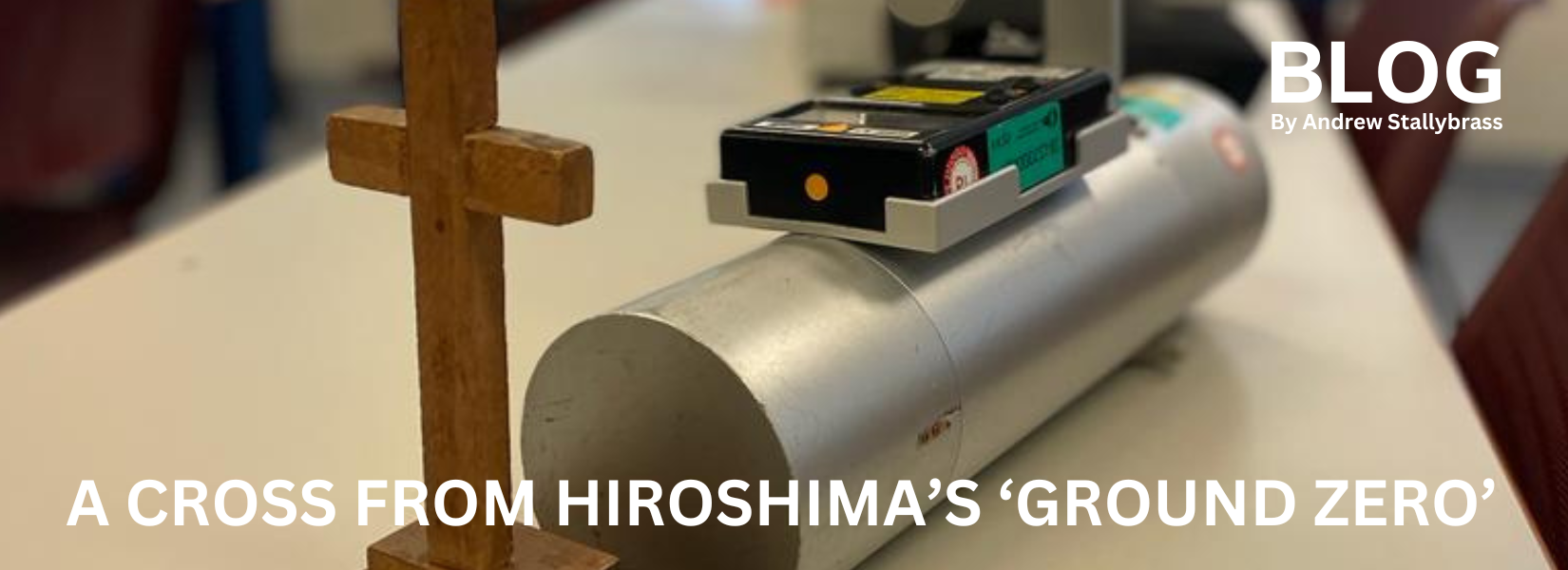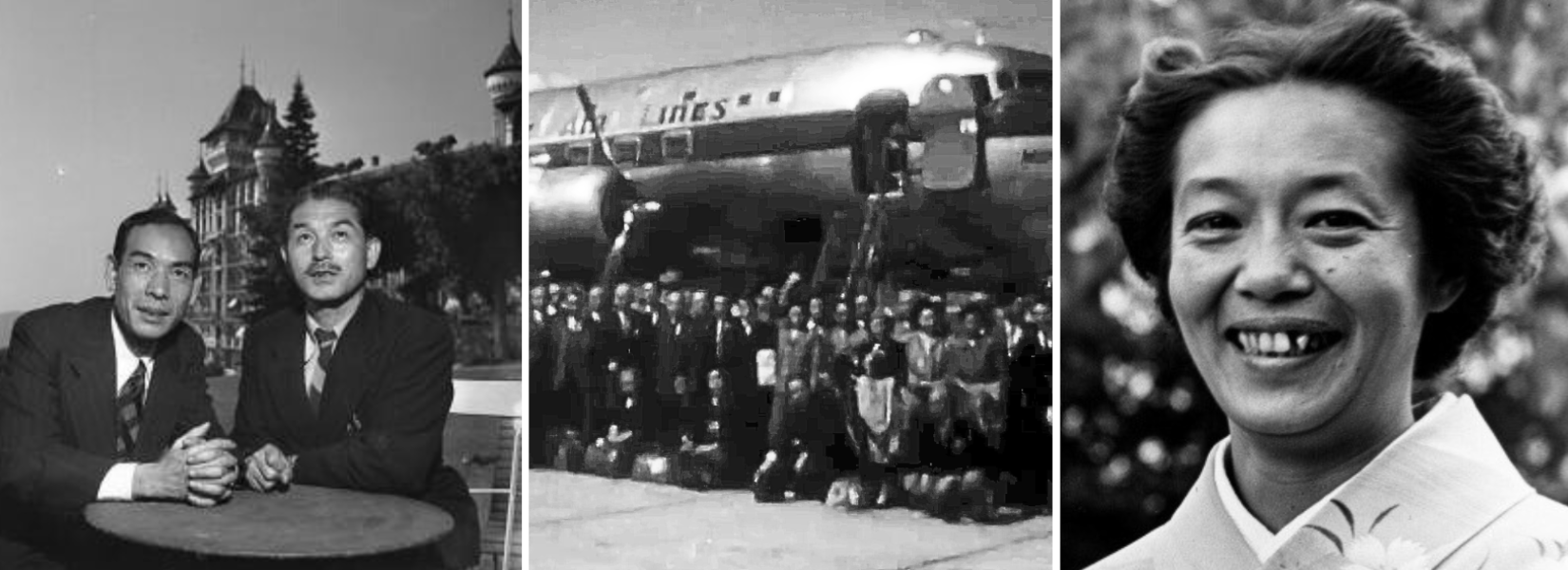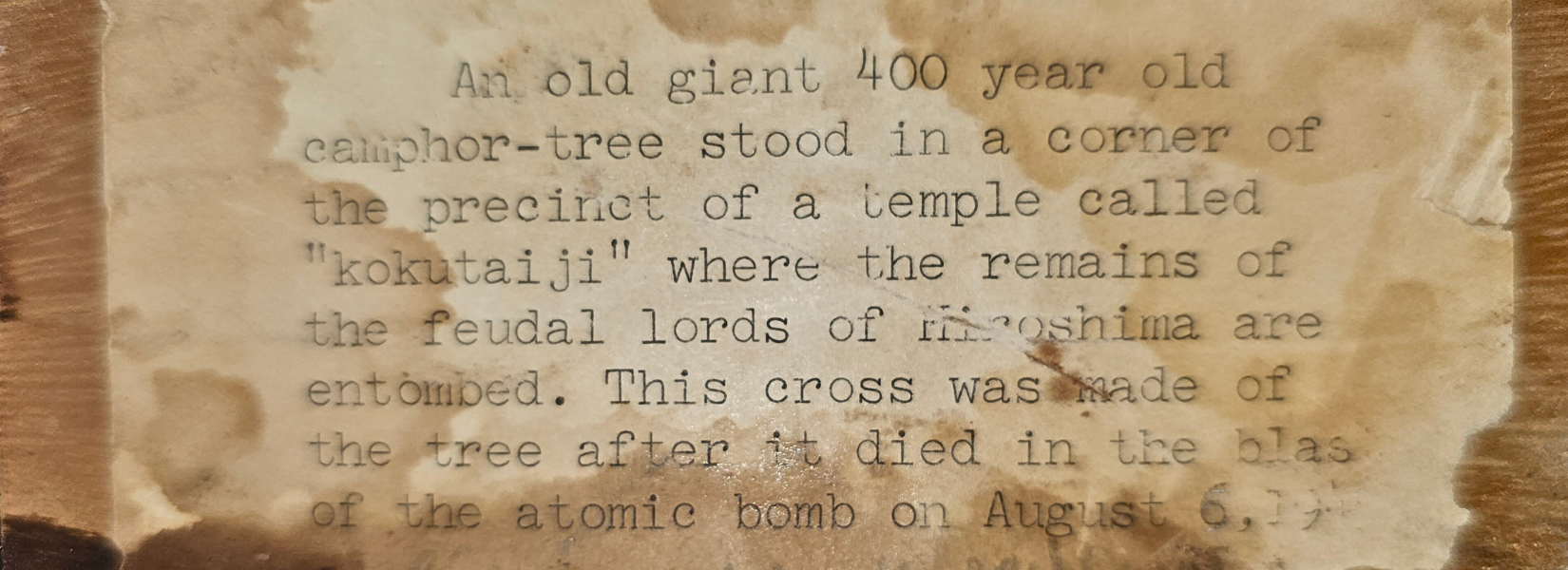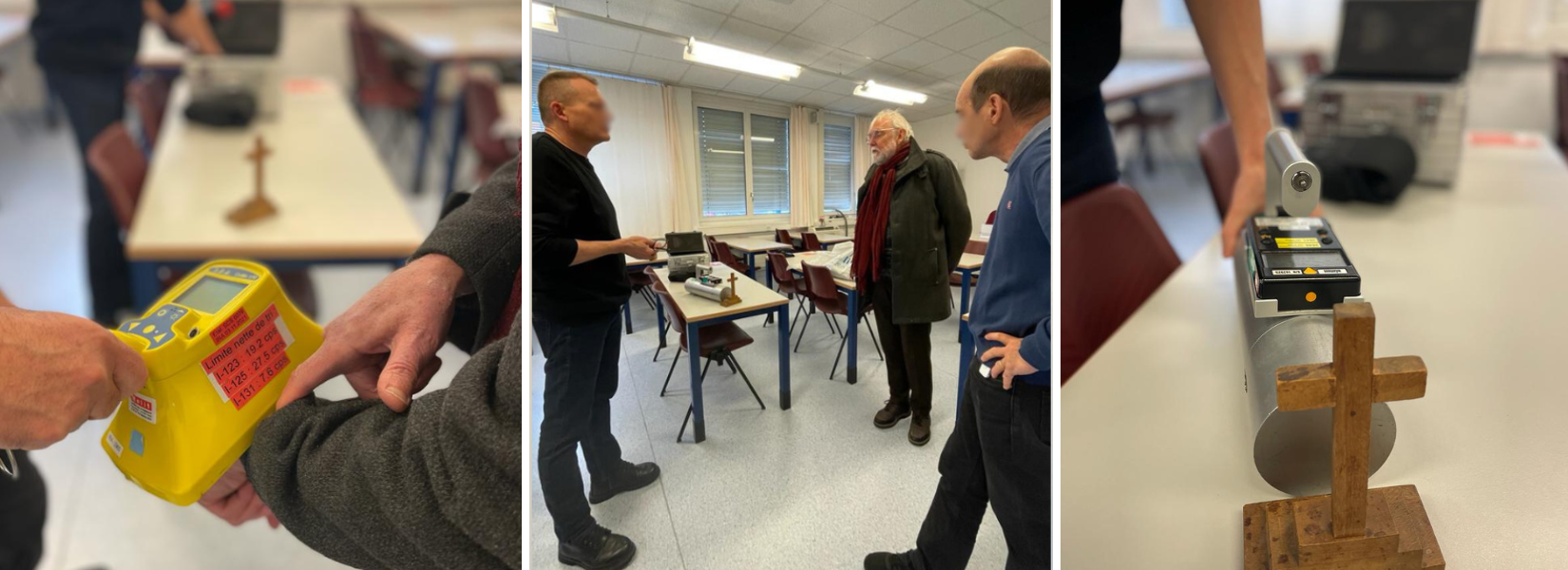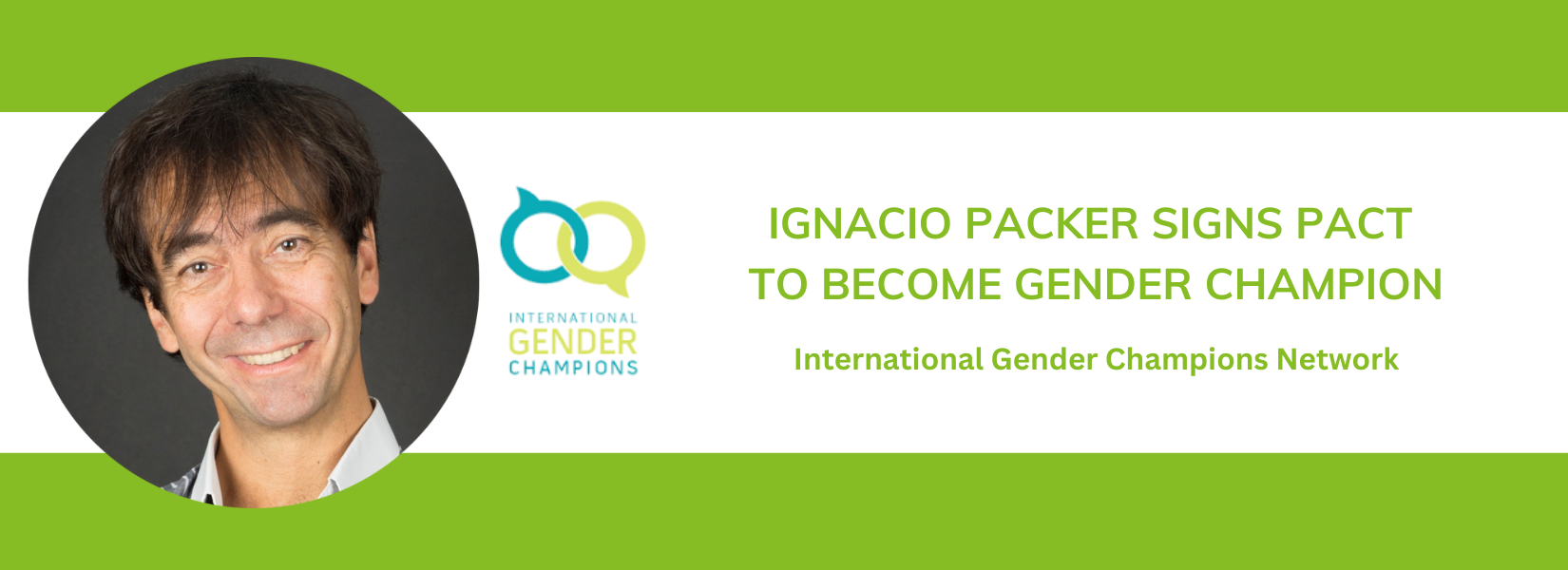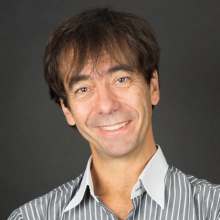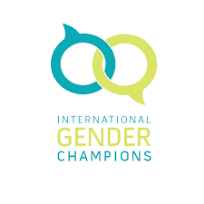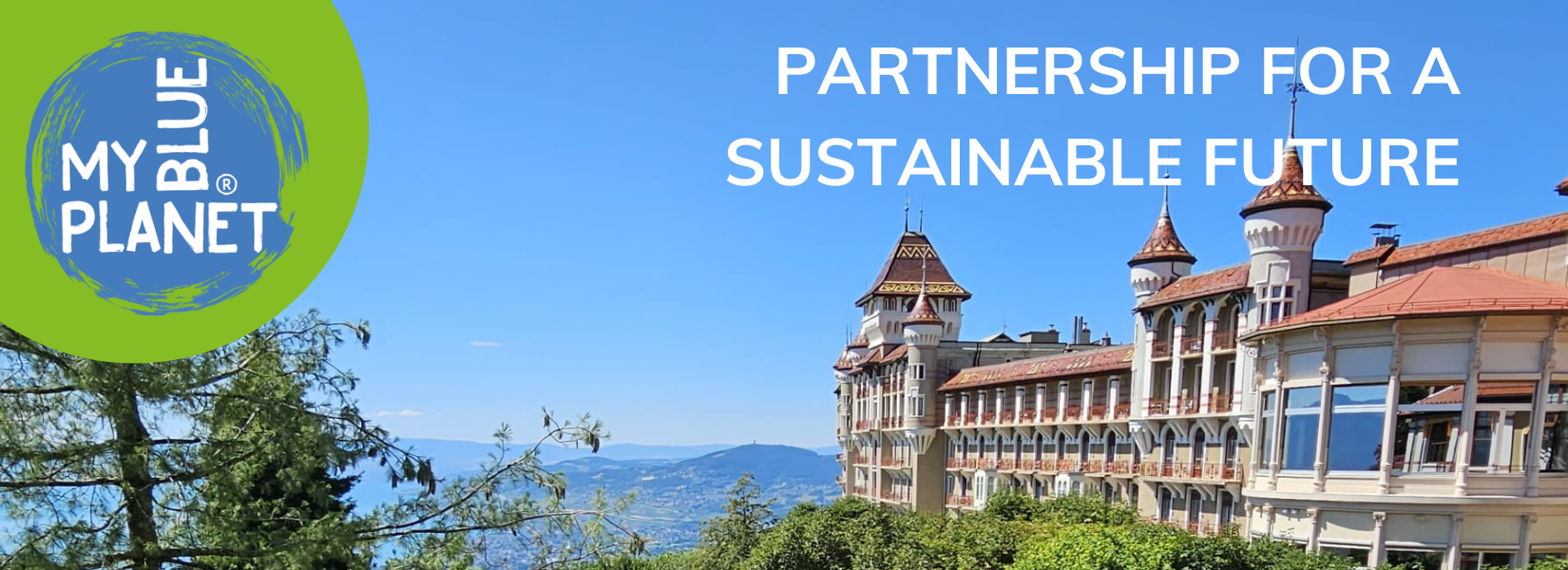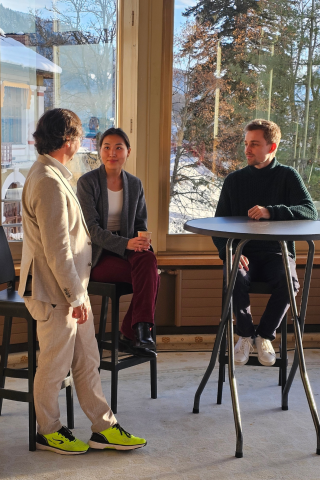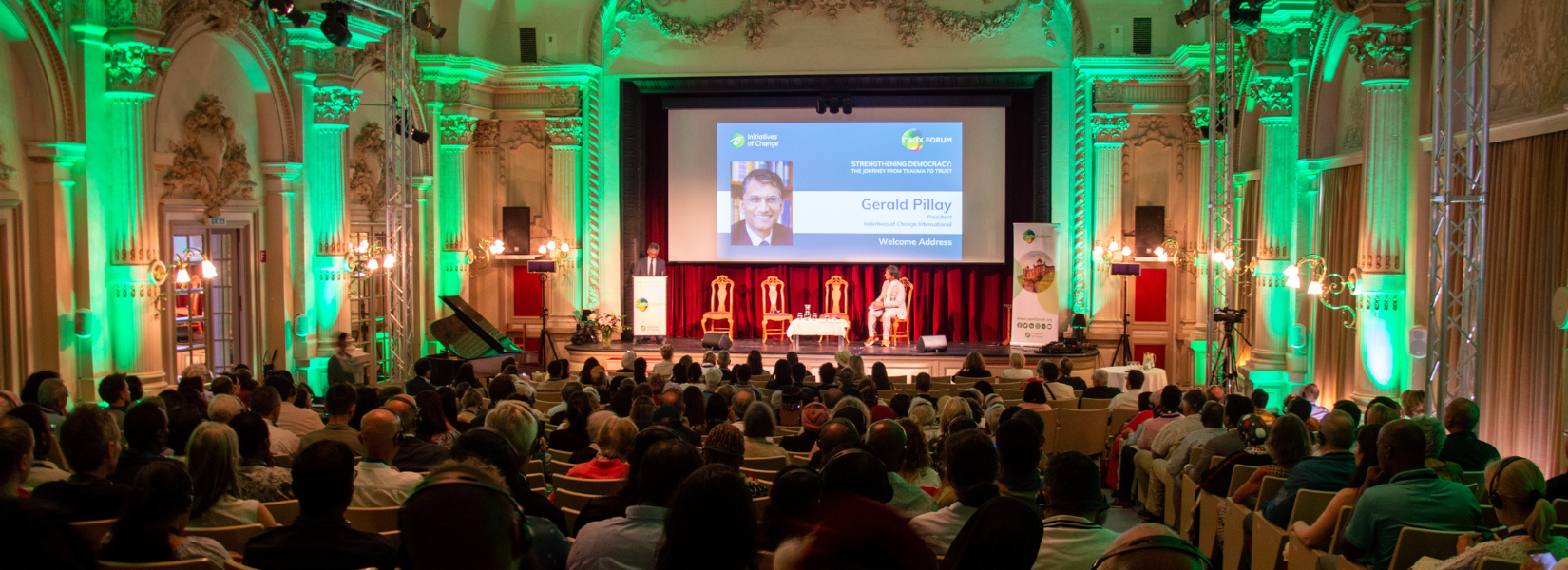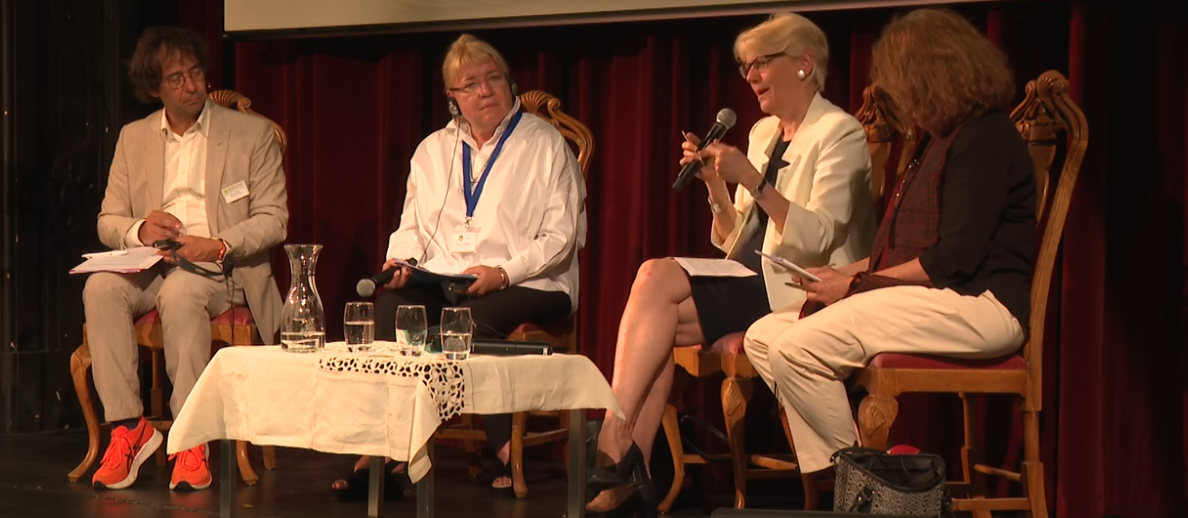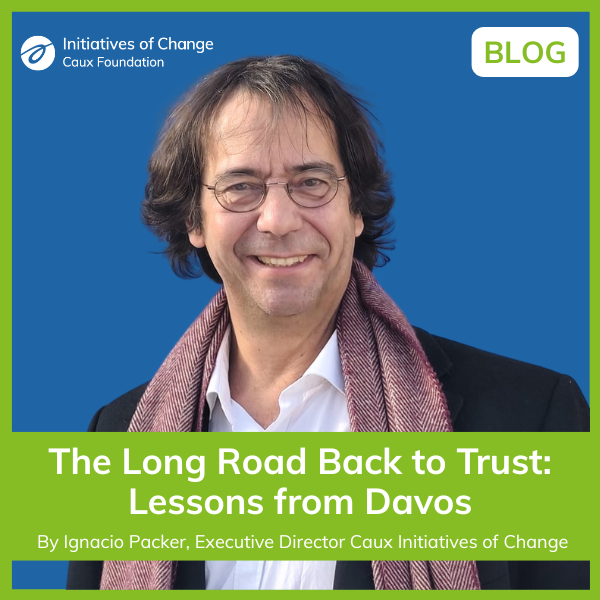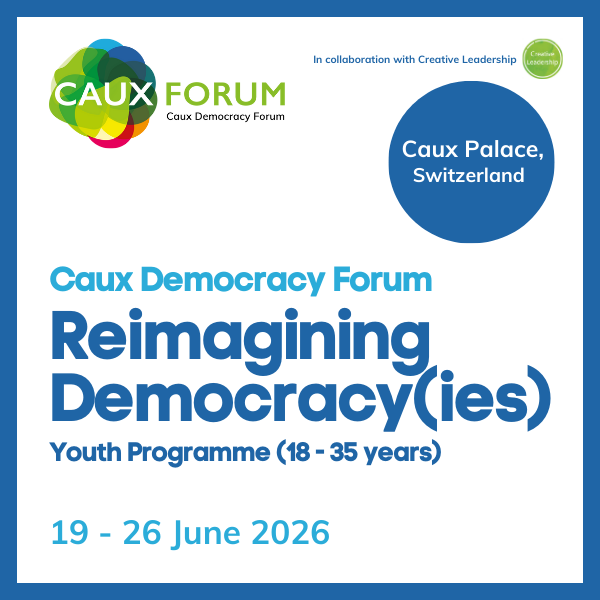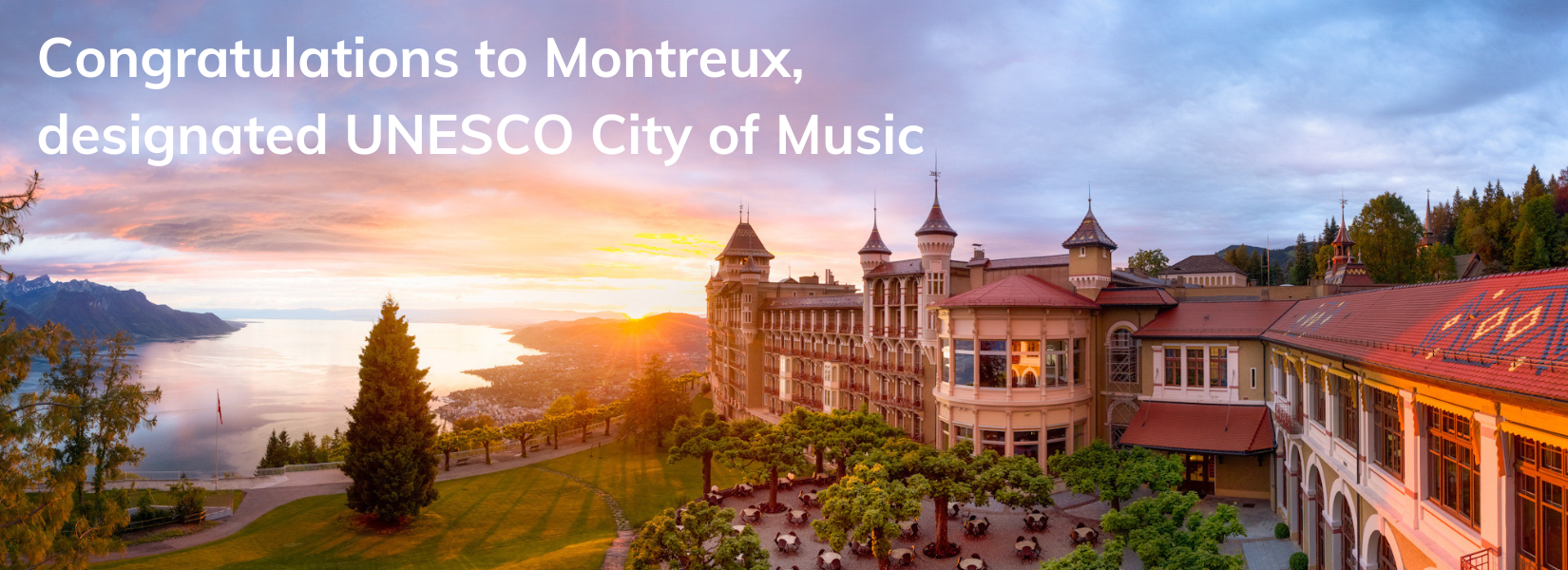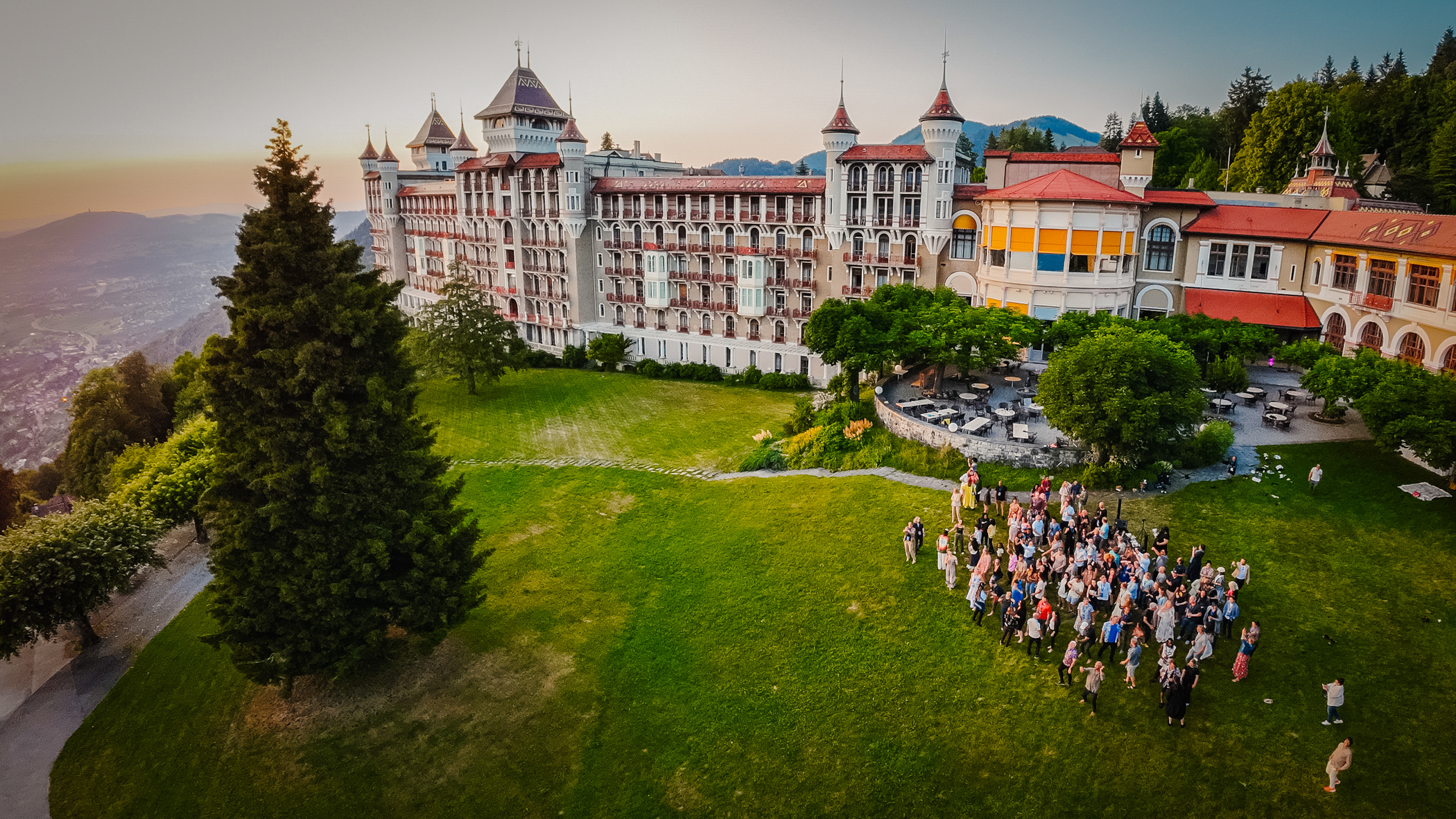A cross from Hiroshima’s ‘Ground Zero’
A blog by Caux Palace historian Andrew Stallybrass
25/01/2024
Thanks to its long and rich history, the Caux Palace is always good for a surprise! And so a seemingly normal event in Caux can unexpectedly serve as a reminder of significant moments of the past, resurrecting fascinating stories and making us dig into history to find out more. Last week, our in-house historian, Andrew Stallybrass, travelled to Lausanne on a mission: to have a little wooden cross from Hiroshima, which had been given to Initiatives of Change in the 1950s as a sign of peace and reconciliation, tested for radioactivity:
In 1950 a delegation of 67 Japanese politicians, trade unionists and industrialists came to Caux in their quest to re-establish their country after defeat in war. When they arrived at the Caux Palace, the Japanese flag was flying outside the conference centre and the delegation was welcomed by a chorus singing in Japanese. It was a moving moment as in those days, Japan was still under American occupation and displaying the Japanese flag was still forbidden there.
The delegation included the Mayors of Hiroshima and Nagasaki and seven prefectural governors. After their stay in Caux, they went on to meet political leaders in Paris, Bonn, Rome, London and Washington. Speaking in the American Senate, the personal representative of the Japanese Prime Minister apologized for ‘Japan’s big mistake’ and said: ‘We ask your forgiveness. We found in Caux the true content of democracy.’ The Senate responded with a standing ovation, as did the House of Representatives the next day.
On the fifth anniversary of the dropping of the bomb on Hiroshima, the delegation was in California. They were invited to speak on CBS radio and Yukika Sohma, a young Japanese woman who travelled with the delegation as a translator, described Caux as a ‘family of nations where differences of race, of class and of point of view were superseded... we saw and experienced reconciliation of hearts.’
The Mayor of Hiroshima, Shinzo Hamai, also spoke in the broadcast, quoting words that he had had heard in Caux: ‘Peace is people becoming different’. He also declared: ‘I for one intend to start this effort from Hiroshima. The one dream and hope left to our surviving citizens is to re-establish the city as a pattern for peace.’
In many places, including the Caux Palace, the mayor (a Christian himself) offered a little wooden cross as a gift from his city. The notice under the cross reads: ‘An old giant 400 year old camphor-tree stood in the corner of a temple called “kokutaiji” where the remains of the feudal lords of Hiroshima are entombed. This cross was made of the tree after it died in the blast of the atomic bomb on 6 August 1945.’
One cross was presented to the Baroness Diane de Watteville, the hostess of the former Initiatives of Change (then known as Moral Re-Armament) centre in Paris. Before her death, she gave it to two close IofC friends, Michel and Catherine Koechlin, and they in turn entrusted it to our safe-keeping (my wife Eliane and myself).
In September 2023, on the occasion of a major event at the Caux Palace, we put together a small, temporary exhibition of documents and objects in the Salon Belle Epoque, including the cross from Hiroshima. Several people commented on it, and a couple of them even wondered if it was dangerous – radioactive.
I confess that this thought had never crossed my mind, despite it being such an obvious question. I was then undergoing radiological treatment at the local hospital. The senior technician there said that his equipment couldn’t test the cross, but he put me in touch with his colleagues in Lausanne where the cross was tested for radioactivity on 16 January 2024.
To our relief, we discovered that there is no danger. Measurements of the cross using various detectors revealed the same level of radioactivity as the background radiation present in the room.
The technicians explained that if the tree, from which the cross was made, had survived the explosion for some years, it could have incorporated radioactivity through its roots. However, the outside of the tree protected the heart from any contamination.
In 2015, the current Mayor of Hiroshima, Kazumi Matsui, sent a letter to the Caux Initiatives of Change Foundation in which he stated how deeply the visit to Caux in 1950 had influenced the then mayor, Shinzo Hamai, and his colleague from Nagasaki, as they faced Japan’s reconstruction after the bombing.
In his letter to Caux, Kazumi Matsui called for a ‘world in which we can have a future-oriented dialogue’ and wrote: ‘If every person listens to the voice of his conscience, he can orient himself in a positive direction, bringing about positive changes not only in the family, workplace, school, community and nation, but also in the relationship between both people and countries.’
Today, the message of peace and reconciliation, connected to this small wooden cross from Hiroshima, remains more important than ever.
‘If every person listens to the voice of his conscience, he can orient himself in a positive direction, bringing about positive changes not only in the family, workplace, school, community and nation, but also in the relationship between (...) people and countries.
Kazumi Matsui, Mayor of Hiroshima, 2015, in a letter to the Caux Initiatives of Change Foundation
______________________________________________________________________________________________________
- Learn more about the story of Yukika Sohma and the Japanese delegation in 1950
- Read more about Katsumi Matsui’s letter to Caux
Written by Andrew Stallybrass (research support U. Ott Chanu)
Video: IofC Film Archives
